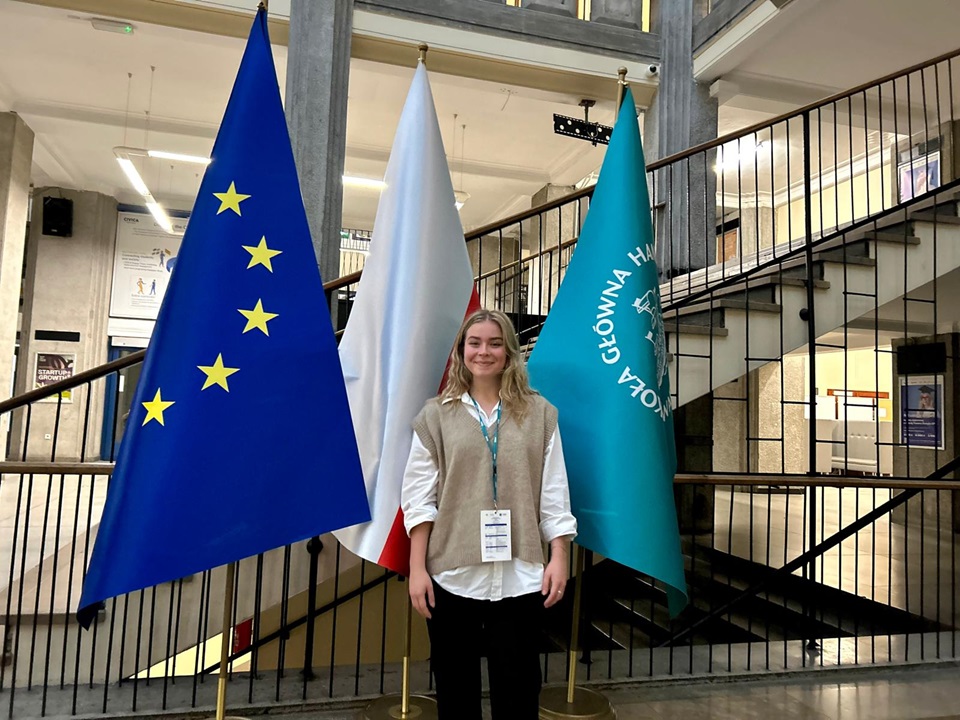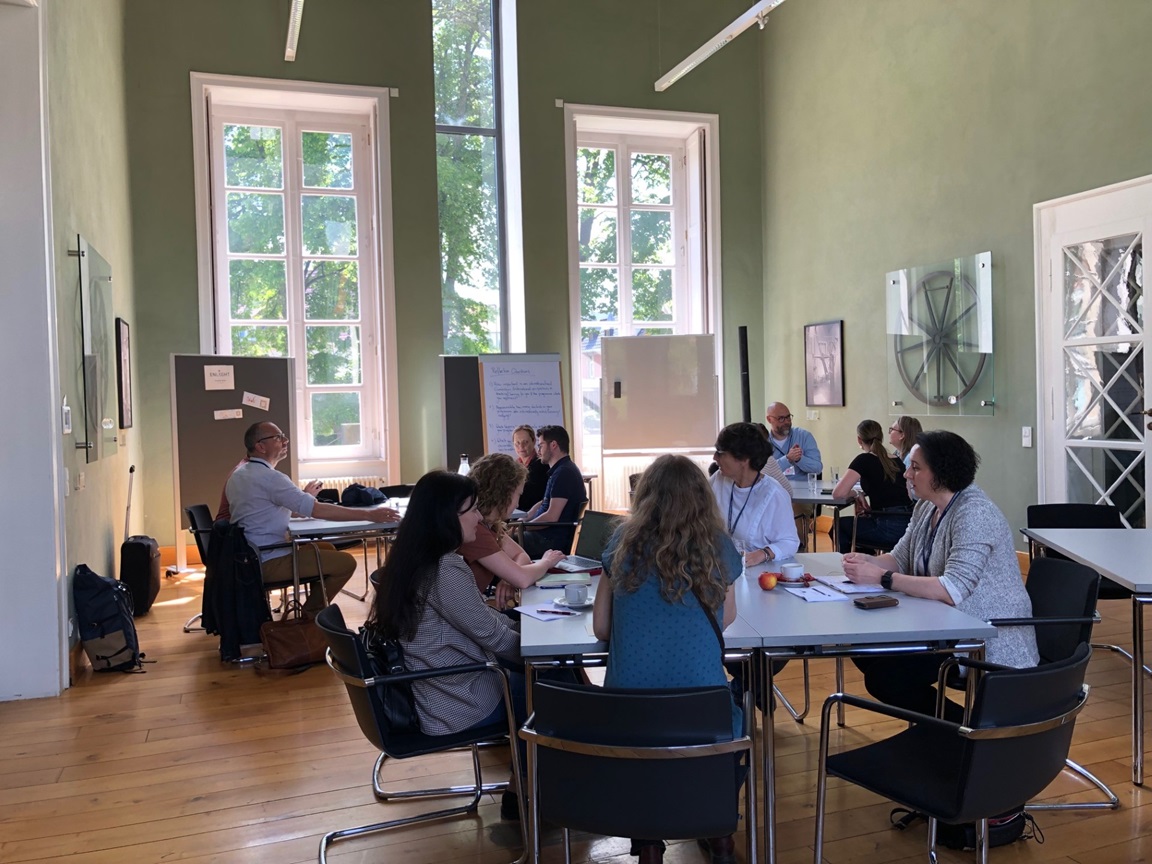From 12 to 14 September 2024, student representatives from across Europe gathered in Warsaw, Poland, for the European Universities Student Ambassadors Forum (EUSAF) in-person meeting. This significant event, hosted by the Warsaw School of Economics (SGH), brought together ambassadors representing about 40 different European University Alliances (EUA) to discuss pivotal issues and collaborations concerning the future of European higher education. Representing ENLIGHT at the forum was Anette-Mai Pirk-Birk, Co-president of the ENLIGHT Student Board from the University of Tartu, in the picture below.
What is EUSAF?
EUSAF is a platform for students from European University Alliances (EUA) to share their ideas and experiences, and to shape the future of education across the continent. It aims to boost student engagement and build a sense of belonging within and across the alliances, while also providing valuable input and recommendations to higher education leaders and policymakers.
Each year, EUSAF brings together student ambassadors for three meetings—two online and one in person—offering workshops, discussions, and networking opportunities that strengthen collaborations and tackle some of the most pressing challenges in European higher education.
Highlights from the Warsaw Meeting
At the in-person meeting in Warsaw, participants took part in interactive workshops, a lively panel discussion, and numerous group activities, all focused on topics directly affecting their roles and the future of European universities.
- Workshop 1: Exploring the Role of Student Ambassadors and Identifying Key Priorities of the Initiative. In this session, participants discussed the similarities and differences between their alliances, focusing on how student networks are organised and how much influence they have within decision-making bodies, and how many students can and should be involved. Key themes included ways to boost student engagement, increase visibility, and ensure that more students are involved and motivated to take part.
- Workshop 2: Local Level Engagement – How to Foster Activities and Engage with Local Communities. This workshop explored how student ambassadors can strengthen ties with local communities and organisations. The group shared their own skills and experiences, discussing ways to collaborate with local stakeholders and mapping out the organisations they wished to partner with. They also explored innovative forms of student participation and empowerment within the alliances, looking at new mechanisms and programmes to boost involvement. By sharing best practices and lessons learnt from other student engagement and capacity-building initiatives, the ambassadors were able to brainstorm creative methods to drive participation and make a lasting impact in their communities.
- Panel Discussion. A key moment in the meeting was a panel discussion featuring the three most-voted posters from the alliances. Ambassadors had the chance to present their posters and share successful practices within their alliances.
- Group discussions: Sharing Best Practices and Addressing Key Challenges. Student ambassadors shared best practices from their alliances and addressed crucial topics such as effective communication within alliances, promoting green mobility, and ensuring continuity through succession planning. The discussion also touched on future scenarios and visions for the development of higher education in Europe through the European University Alliances and other platforms of cooperation.
Beyond discussions, the event provided a fantastic opportunity for capacity-building. Organised in collaboration with the Erasmus Student Network, it allowed ambassadors to forge meaningful connections, learn from one another, and explore new approaches to the challenges faced by their alliances. These insights are sure to benefit the ENLIGHT Student Network and inspire future initiatives.
Looking Ahead
The EUSAF meeting in Warsaw was much more than just a gathering—it was a chance for student leaders to come together, learn from one another, and return to their alliances with fresh ideas and renewed energy. We’re excited to see how these discussions will continue to shape the future of European higher education.















